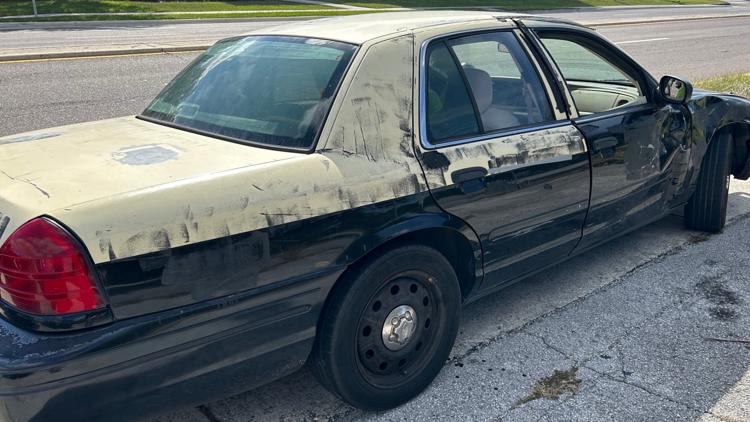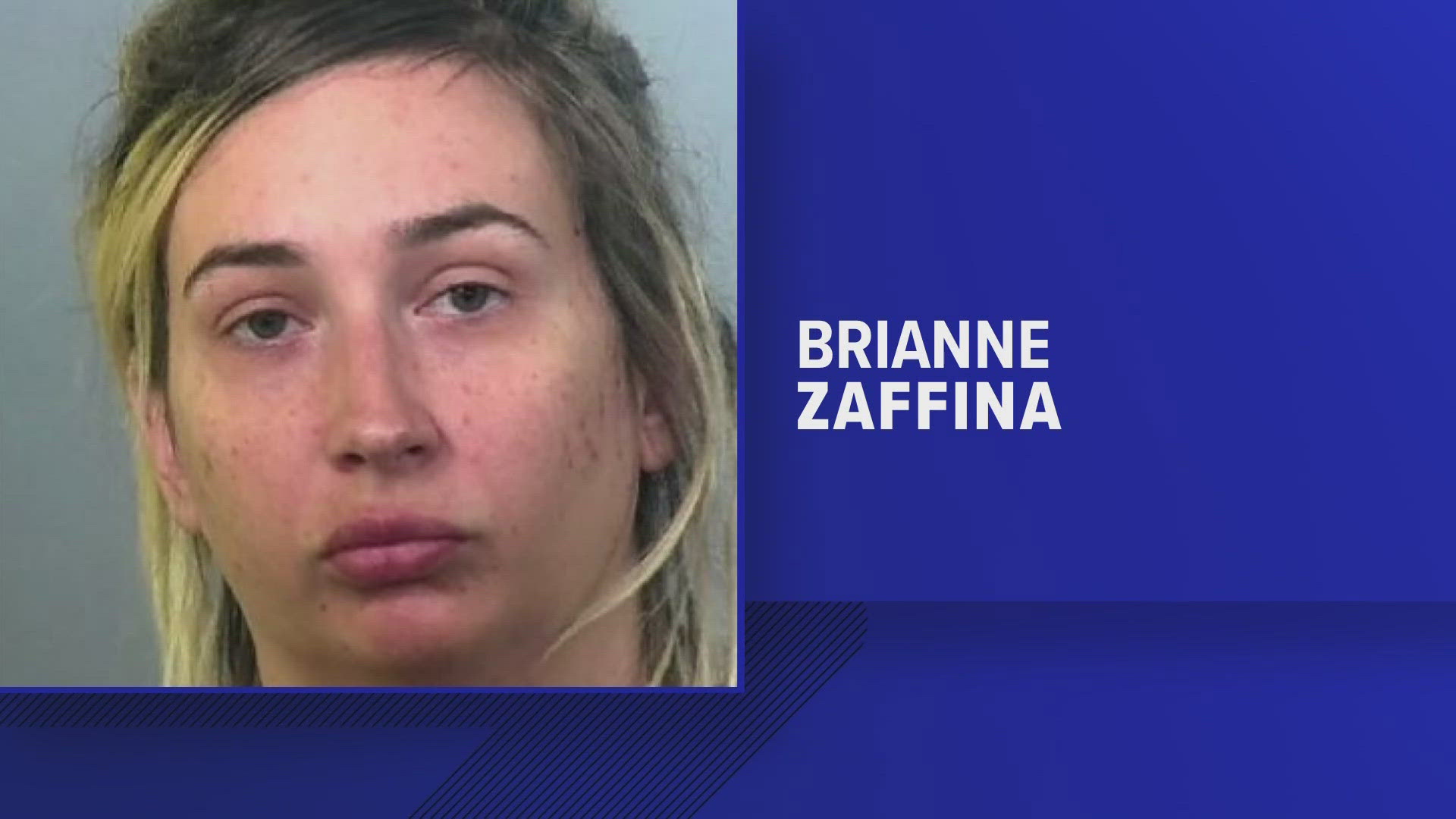FLORIDA, USA — It's been happening a lot lately: A man in Tampa being arrested for putting flashing red and blue lights in his windshield and pulling other drivers over, a woman arrested in Medley and a man cited in Tampa for driving cars painted with the same black and tan color scheme as Florida Highway Patrol troopers.
Also, DeSoto County deputies accusing the driver of a truck labeled "Booty Patrol" of impersonating law enforcement.
Florida is seeing strangely frequent cases of drivers running afoul of state rules prohibiting drivers from making their cars look like law enforcement vehicles, an offense where consequences have ranged from citations to arrests and impounded vehicles.
But is driving a vehicle that could be mistaken for a cop car really against the law?
Florida law specifically prohibits making your car look like a Florida Highway Patrol vehicle, the ones with tan tops and a black wrap.
Under the terms of the law, anyone whose car mimics the black and tan color scheme of patrol vehicles or in any way impersonates a trooper through uniforms, emblems, motor vehicles and motorcycles commits a first-degree misdemeanor. This is specifically why the drivers in Medley and Tampa had their cars impounded and formal charges filed against them.
With the exception of authorized emergency vehicles, drivers are also prohibited from having red or blue flashing lights visible from the front of their car.
However, in this particular case the mere presence of those lights, though a violation of traffic rules, is not a crime unless the driver in question tries to stop or pull over other vehicles on the road. That is when the behavior crosses into impersonating law enforcement, also a first-degree misdemeanor.
This distinction is why Earl Cesario of Tampa was arrested and charged for putting emergency lights on the windshield of his truck and demanding another driver pull over, while the owner of the "Booty Patrol" show truck in DeSoto County is not currently facing criminal charges.
In short, look-alike Florida law enforcement cars are generally against the rules. If they resemble FHP cars too closely, or the driver starts to use them to pull over other drivers, that's when they become evidence of a crime.



